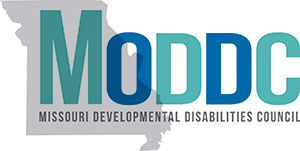House Bill (HB) 349 summary
The bill would create the Missouri Empowerment Scholarship Accounts Program (MESAP)
- Funding for MESAP would come from private donations to an Educational Assistance Organization (EAO). There are currently 11 EAOs in Missouri.
- Donors who make donations would receive tax credits for any donations made to EAOs.
- The EAO will award grants in a prioritized order. Students with approved IEPs developed under the Individuals with Disabilities Education Act (IDEA) being one of the categories that take first priority for distribution of scholarships.
- The scholarships can be used by families at Qualified Schools (Section 135.712), which include:
- A charter school
- A private school
- A public school
- A public or private virtual school
potential impacts
Why MESAP could be disproportionately harmful to students with intellectual or developmental disabilities (IDD)
The state of Missouri currently has 11 Educational Assistance Organizations: 5 in Kansas City Metro, 5 in St. Louis Metro and 1 in Columbia, MO. It is unclear whether more EAOs will be created and where. This could present accessibility issues and longer travel for those in rural communities.
Even though students with IEPs are given priority for receiving the scholarships:- It is not clear how much their scholarship would be and if it would cover the services and supports needed at a non-public school.
- Students must receive an education in at least English Language Arts, Mathematics, Social Studies and Science. The bill is not clear whether students are able to receive accommodations as required in IDEA for these classes in a charter or private school setting.
- Each EAO will “…provide rates of high school graduation, college attendance and college graduation for participating students.” The EAO will provide this and other data that the state will publish on a public website. These measures are not uniform or comprehensive measurements of success for any student.
- If EAOs are accountable for these metrics, this could lead to discrimination of students with disabilities whose family may want their student to attend a charter or private school under this program. In this bill, there are no consequences for schools who discriminate based on disability.
Why students with IDD may not be protected under IDEA at Charter and Private Schools
The Individuals with Disabilities Education Act (IDEA) is federal law that “makes available, a Free and Appropriate Public Education (FAPE) to eligible children throughout the nation and ensures special education and related services to those children.” (Source: About IDEA - Individuals with Disabilities Education Act) This federal law mandates that students with IDD are provided special education services identified in their IEP without charge. IEPs provide a professional and family team approach to providing students with IDD with any specialized supports they will need to be successful on their own terms.
Even though the bill states that students with IEPs are a priority for receiving these scholarships:
- It is unclear whether the scholarships will provide all necessary services for that individual if they choose a charter or private school. Historically, parents have been asked to waive their rights under IDEA for their child to attend a charter or private school.
- The bill states that a qualified school will not be required to, “…alter its creed, practices, admissions policy or curriculum in order to accept students from this program.” It is unclear if all qualified schools in this program will modify their curriculum to accommodate students with disabilities.
- The reporting pressures of EAOs may lead to schools making assumptions that students who require modifications and accommodations through an IEP would not meet these metrics. Again, the bill is not clear. whether charter or private schools are required to provide accommodations.
- The bill DOES NOT protect from discrimination based on disability. A student with an IEP can receive a scholarship and then be refused admission to a school of their choice based on their needs OR be removed from the program if they are not meeting performance standards. It is stated in the bill that all schools, including charter or private schools receiving funds under HB 349 are specifically prohibited from discriminating against students based on race, color and national origin but are not prohibited from discriminating against students with disabilities.

